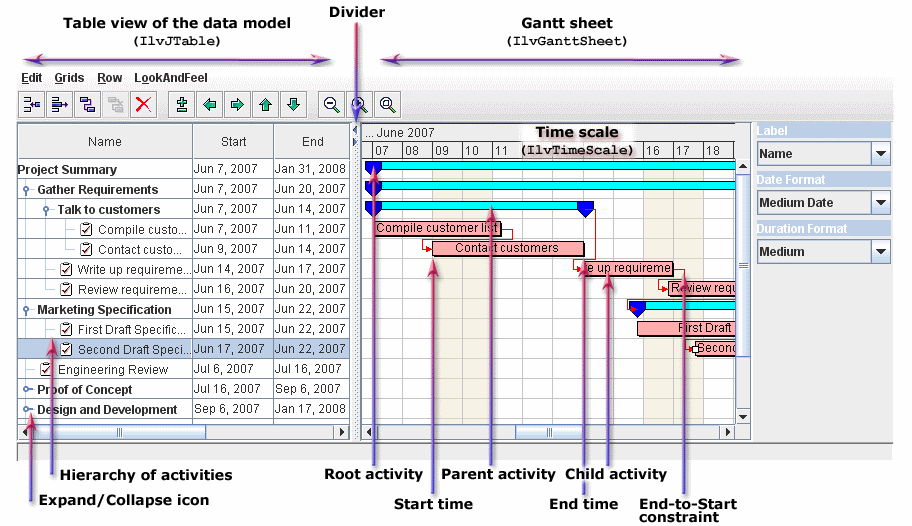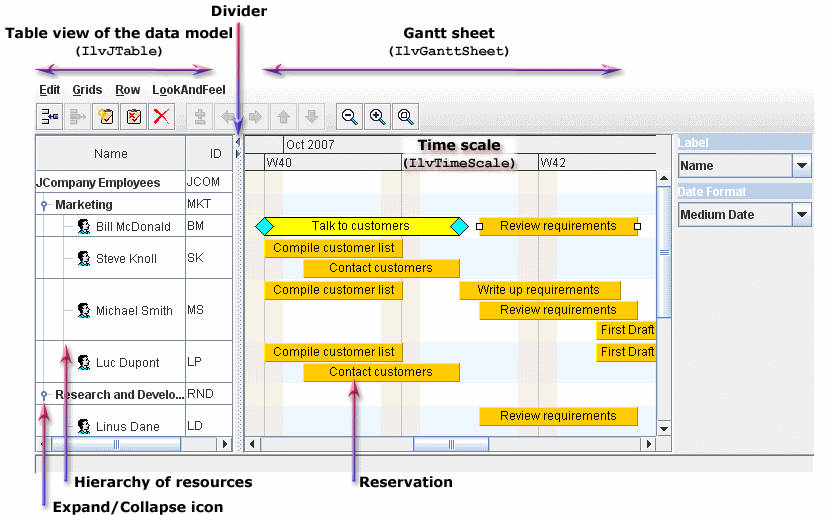The right part of a Gantt chart or Schedule chart is a graphic
component called the Gantt sheet, which is an instance of the class
IlvGanttSheet. It is designed both for the
graphical display of the Gantt data in a Gantt data model and as an
interactive interface that allows users to manipulate the Gantt
data by means of interactors implemented for this purpose.
The Gantt sheet is a user interface
component designed for two main purposes:
-
To display the data of a given Gantt data model graphically, namely:
- Activities and constraints in a Gantt chart
- Reservations in a Schedule chart
- To let users interact with the current instance of the IlvGanttModel interface by means of a number of interactors developed for this purpose.
The following figure shows the Gantt sheet
in a Gantt chart.

Gantt rows
A Gantt sheet consists of several rows, which are instances of
the IlvGanttRow class.
Rows have the following properties:
- They can be enumerated by a call to one of the methods getGanttRowCount or ganttRowIterator of the IlvGanttSheet class.
- They can be visible or hidden. When some rows are hidden, you can use the methods getVisibleGanttRowCount and getVisibleGanttRowAt to enumerate the visible ones.
- A Gantt row contains one or more activity graphics to represent activities.
The following figure shows the Gantt sheet
in a Schedule chart.

Activity graphics
Activity graphics are instances of the class IlvActivityGraphic. They are designed to
represent the associated activity, which can be accessed by
calling the method getActivity. An activity graphic is drawn
as the result of a call to an activity renderer. (See the Activity renderers section.) The activity
renderer defined for an activity graphic can be accessed or
changed by the getActivityRenderer and setActivityRenderer methods of the IlvActivityGraphic class.
Activity renderers
Activity renderers are objects that implement the IlvActivityRenderer interface to render
activities. These objects work in association with the IlvActivityGraphic class; when an activity
graphic needs to be drawn, the draw method of the IlvActivityRenderer
interface is called.
